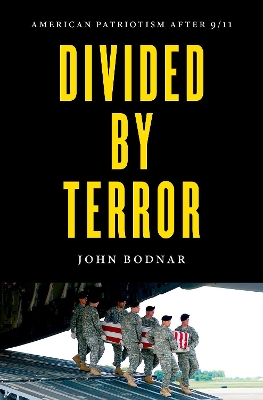
Americans responded to the deadly terrorist attacks on September 11, 2001, with an outpouring of patriotism, though all were not united in their expression. A war-based patriotism inspired millions of Americans to wave the flag and support a brutal War on Terror in Afghanistan and Iraq, while many other Americans demanded an empathic patriotism that would bear witness to the death and suffering surrounding the attack. Twenty years later, the war still simmers, and both forms of patriotism continue to shape historical understandings of 9/11's legacy and the political life of the nation.
John Bodnar's compelling history shifts the focus on America's War on Terror from the battlefield to the arena of political and cultural conflict, revealing how fierce debates over the war are inseparable from debates about the meaning of patriotism itself. Bodnar probes how honor, brutality, trauma, and suffering have become highly contested in commemorations, congressional correspondence, films, soldier memoirs, and works of art. He concludes that Americans continue to be deeply divided over the War on Terror and how to define the terms of their allegiance--a fissure that has deepened as American politics has become dangerously polarized over the first two decades of this new century.
Blatantly Biased, But Well Written Within That Bias. I gotta admit: When I picked up this ARC, I was hoping for something as transcendental as 2020's Divided We Fall by David French, but focusing on the issue of terror and how it has divided America in the post 9/11 world. I'm someone that has been on "both" sides of that divide, growing from a conservative Evangelical Christian Republican 18yo college student born and raised between the two endpoints of the American Civil War's Great Train Robbery to a now 38 year old anarchist professional living even further South. So this book, based on its title and description, looked promising.
Its actual text though... didn't fulfill that promise. Not for me.
To be clear, this is a very well documented examination of much of the response to 9/11 and the War on Terror, from many divergent angles ranging from the personal and private to the governmental to the societal to the cultural. Bodnar does a tremendous job of highlighting facts that even as someone living through this history (though usually from several States away from the events he is describing at any given moment), I simply did not know and often had never heard of.
The problem is that this examination is very blatantly one sided, and even the language Bodnar chooses to use often reflects this blatant bias. Thus, for those that agree with this particular bias, this book will probably be much more well received than for those who disagree with it - and the level of one's beliefs either direction will likely reflect how such a person feels about this book in a similar manner.
In the end, there is nothing technically wrong with this text, other than the blatant bias - and therefore the bias itself is the basis for the removal of one star. Yet even there, the bias isn't *so* horrible as to rate the deduction of a second star, and there is a tremendous amount of needed history documented within these pages. Thus, I am satisfied at this time with the four stars I give the book. And yet, because of the bias, I cannot *highly* recommend the book and therefore it is...
Recommended.
Reading updates
-
Started reading
-
9 February, 2021:
Finished reading
-
9 February, 2021:
Reviewed
